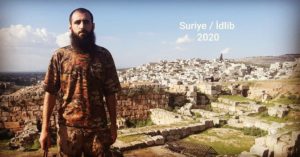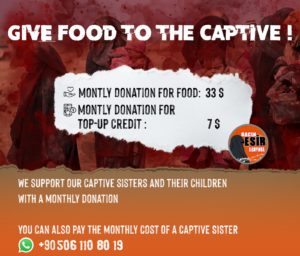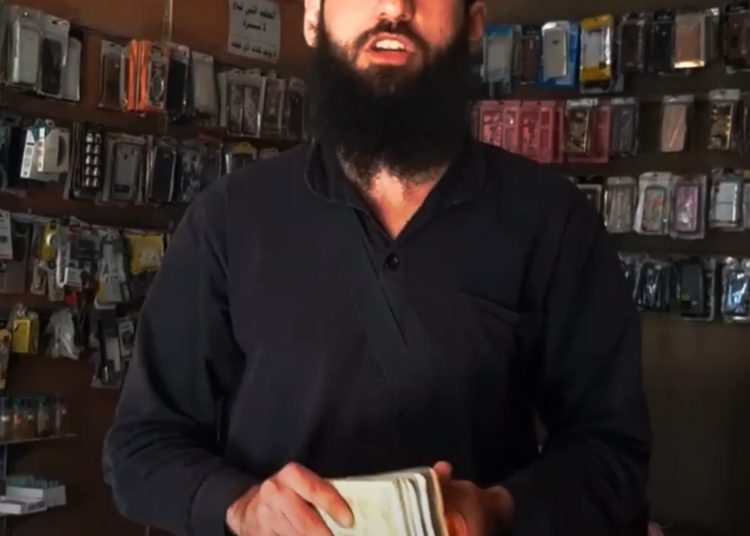Abdullah Bozkurt/Stockholm
A Turkish jihadist group organized in Ankara to finance the Islamic State in Iraq and Syria (ISIS) has continued to operate for several years despite the fact that the authorities have long known what they were doing.
The ISIS group, established as a platform under the name of Dar’ul Erkam Fisebilillah (The house of Arqam in the cause of Allah), was raising funds to help and free ISIS captives held by Kurdish groups in Syria. The funding network quickly expanded from Ankara to some 20 other Turkish provinces, while the group set up an operations center in Idlib, a Syrian province under the control of the Turkish Armed Forces and its affiliate armed groups.
Although several members of the group were detained in police operations, the activities of Dar’ul Erkam did not stop and in fact have grown even more. Some 60 members of the group have been detained so far, but almost all were let go after brief questioning.

The funding campaign, launched in April 2020 with multilingual posters, asked contributors to donate $33 a month to support ISIS women who were detained at the al-Hawl and Roj camps in northeastern Syria.
The group had managed to raise cash to support more than 300 women as of May 2020 with donations it received not only from Turkey, but also from Belgium, Germany and other European countries. It also covered expenses for mobile phones used by ISIS members in these camps.
Dar’ul Erkam is also running operations to bring ISIS members, both Turkish and non-Turkish, to Turkey by paying smugglers on the border and continues to provide cash once they arrive in Turkey.
The group is led by Yavuz Selim Binici, a Turkish national who lives in Ankara and manages social media teams to promote the ideology of ISIS and raise money. He travels back and forth between Syria and Turkey.

The transfer of funds is mainly done through the hawala system, an alternate way of transferring money outside the traditional banking system, although the group has multiple accounts set up with QNB Finansbank, a Turkish bank owned by the Doha-based QNB Group.
The group’s media propaganda arm, which was promoting both the ISIS and al-Qaeda groups on its website www.darulmedya.com, is now defunct. But a survey of articles in the Wayback machine archive shows that it had been supporting suicide attacks committed by jihadist groups and disseminating the views of Turkish jihadist preacher Abu Hanzala (real name Halis Bayancuk), who encouraged many young men to join al-Qaeda and ISIS.
Cash transfers to ISIS members in camps in Syria:
It appears to have been associated with the Turkish jihadist group Vasat, listed as a terrorist entity in Turkey for bombing a Bible publishing house and killing an innocent boy. Vasat’s leader, Şahimerdan Sarı, a 61-year-old extremist cleric who was twice convicted and served time on terrorism charges, resumed his activities after he was freed by the government of President Recep Tayyip Erdoğan in June 2019.
Dar’ul Erkam was the target of police operations, but most detainees were quickly released. In April 2019 police detained eight members of Dar’ul Erkam on terrorism charges for links to Hayat Tahrir al-Sham (HTS), including Dilek Demir, who runs the women’s wing of the Dar’ul Erkam group. Only a few were formally arrested, while the rest were let go.

Some members Dar’ul Erkam remain fugitives since police have been unable to locate them to serve outstanding arrest warrants. One of them is Cebrail Kaya, 27-year-old resident of Gaziantep, a province that is home to ISIS cells. He has been indicted multiple times on terrorism charges and faces four ISIS cases filed with high criminal courts in Ankara and Gaziantep provinces.
Although he was a member of Dar’ul Erkam, which has been raising funds for ISIS for years, the Erdoğan government did not act to freeze his assets until December 2021.
Confidential file on Cebrail Kaya shows him as affiliated with the Dar’ul Erkam group:












